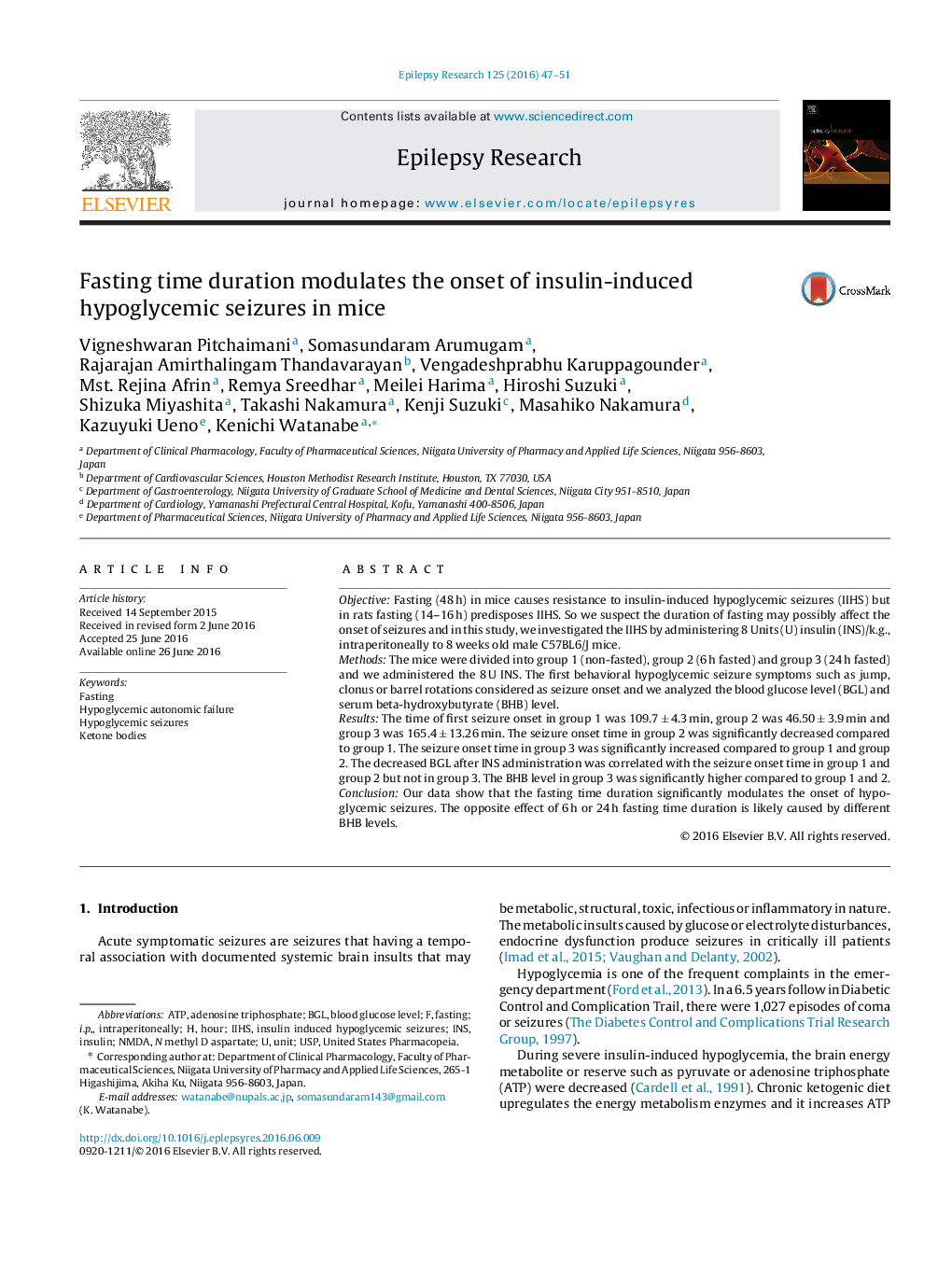| Article ID | Journal | Published Year | Pages | File Type |
|---|---|---|---|---|
| 3051908 | Epilepsy Research | 2016 | 5 Pages |
•Fasting duration 6 h and 24 h modulate insulin-induced hypoglycemic seizure onset.•The quick seizure onset in 6 h fasted mice was possibly due to lower ketone levels.•The late seizure onset in 24 h fasted mice was possibly due to higher ketone levels.
ObjectiveFasting (48 h) in mice causes resistance to insulin-induced hypoglycemic seizures (IIHS) but in rats fasting (14–16 h) predisposes IIHS. So we suspect the duration of fasting may possibly affect the onset of seizures and in this study, we investigated the IIHS by administering 8 Units (U) insulin (INS)/k.g., intraperitoneally to 8 weeks old male C57BL6/J mice.MethodsThe mice were divided into group 1 (non-fasted), group 2 (6 h fasted) and group 3 (24 h fasted) and we administered the 8 U INS. The first behavioral hypoglycemic seizure symptoms such as jump, clonus or barrel rotations considered as seizure onset and we analyzed the blood glucose level (BGL) and serum beta-hydroxybutyrate (BHB) level.ResultsThe time of first seizure onset in group 1 was 109.7 ± 4.3 min, group 2 was 46.50 ± 3.9 min and group 3 was 165.4 ± 13.26 min. The seizure onset time in group 2 was significantly decreased compared to group 1. The seizure onset time in group 3 was significantly increased compared to group 1 and group 2. The decreased BGL after INS administration was correlated with the seizure onset time in group 1 and group 2 but not in group 3. The BHB level in group 3 was significantly higher compared to group 1 and 2.ConclusionOur data show that the fasting time duration significantly modulates the onset of hypoglycemic seizures. The opposite effect of 6 h or 24 h fasting time duration is likely caused by different BHB levels.
